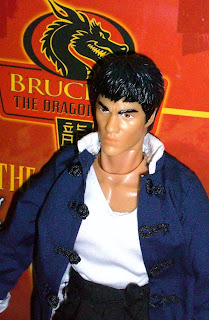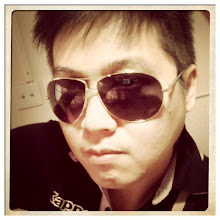Bruce Lee (Chinese: 李小龍, born Lee Jun-fan (Chinese: 李振藩),27 November 1940 – 20 July 1973) was a Chinese American actor, martial arts instructor, philosopher, film director, film producer, screenwriter, and founder of the Jeet Kune Do martial arts movement. He is considered one of the most influential martial artists of the 20th century, and a cultural icon Lee was born in San Francisco, California in the United States, to parents of Hong Kong heritage but raised in Hong Kong until his late teens. Upon reaching the age of 18, Lee emigrated to the United States to claim his U.S. Citizenship[6] and receive his higher education. It was during this time he began teaching martial arts, which soon led to film and television roles. His Hong Kong and Hollywood-produced films elevated the traditional Hong Kong martial arts film to a new level of popularity and acclaim, and sparked a major surge of interest in Chinese martial arts in the West in the 1970s. The direction and tone of his films changed and influenced martial arts and martial arts films in Hong Kong and the rest of the world as well. He is noted for his roles in five feature-length films, Lo Wei's The Big Boss (1971) and Fist of Fury (1972); Way of the Dragon (1972), directed and written by Lee; Warner Brothers' Enter the Dragon (1973), directed by Robert Clouse; and The Game of Death (1978), directed by Lee. Lee became an iconic figure known throughout the world and remains very popular among Asian people and in particular among the Chinese, as he portrayed Chinese nationalism through his films. While Lee initially trained in Wing Chun, he later rejected well-defined martial art styles, favoring instead to utilize useful techniques from various sources in the spirit of his personal martial arts philosophy he dubbed Jeet Kune Do (The Way of the Intercepting Fist).
Sunday, August 29, 2010
Bruce Lee 12" Action Figure
Bruce Lee (Chinese: 李小龍, born Lee Jun-fan (Chinese: 李振藩; pinyin: Lǐ Zhènfān); 27 November 1940 – 20 July 1973) was a Chinese American actor, martial arts instructor, philosopher, film director, film producer, screenwriter, and founder of the Jeet Kune Do martial arts movement. He is considered one of the most influential martial artists of the 20th century, and a cultural icon
Lee was born in San Francisco, California in the United States, to parents of Hong Kong heritage but raised in Hong Kong until his late teens. Upon reaching the age of 18, Lee emigrated to the United States to claim his U.S. Citizenship[6] and receive his higher education. It was during this time he began teaching martial arts, which soon led to film and television roles.
His Hong Kong and Hollywood-produced films elevated the traditional Hong Kong martial arts film to a new level of popularity and acclaim, and sparked a major surge of interest in Chinese martial arts in the West in the 1970s. The direction and tone of his films changed and influenced martial arts and martial arts films in Hong Kong and the rest of the world as well. He is noted for his roles in five feature-length films, Lo Wei's The Big Boss (1971) and Fist of Fury (1972); Way of the Dragon (1972), directed and written by Lee; Warner Brothers' Enter the Dragon (1973), directed by Robert Clouse; and The Game of Death (1978), directed by Lee.
Lee became an iconic figure known throughout the world and remains very popular among Asian people and in particular among the Chinese, as he portrayed Chinese nationalism through his films. While Lee initially trained in Wing Chun, he later rejected well-defined martial art styles, favoring instead to utilize useful techniques from various sources in the spirit of his personal martial arts philosophy he dubbed Jeet Kune Do (The Way of the Intercepting Fist).
Thursday, January 7, 2010
什么是自助游?
什么是自助游?
自助游是近年来兴起的一种旅游方式,游客可自己预订机票,可自行选择喜欢的酒店、景点、旅游娱乐方式,然后由旅行社提供酒店、机票预订、旅游保险、导游及用车等服务,游客到达目的地后可利用旅行社提供的车辆自由旅行至任何景点,随心所欲,自由自在,基本上和现实中“自助餐”是同样的道理。摆脱了从前非得按旅行社预先安排好的行程旅行的模式,此模式推出后受到了游客们的喜爱,是旅游发展的一种象征。据说最早起源于国外的“背包旅行”方式。
自助旅游已不是年轻人的专利,也不是省钱旅游的代名词,而成为重要的旅游趋势,无论老少,希望享受自由、深入、有特色旅游的人都会加入自助旅游的行列。可是仍有很多人对自助旅游有错误的认识,很多人认为自助旅游是一种省钱的旅游方式,旅游内容粗糙,可能会有很多危险,旅馆没有预定会有不安全的感觉,其实,如果深入了解自助旅游特性,会发现自助旅游是一种相当精致有特色的旅游形态。自助旅游使所有的花费都可依自己的喜好来支配,行程可弹性调整,又可深入了解当地民情风俗。自助旅游绝非玩得多、花得少的旅游方式,而是一种在同一地方花上较多的时间深入了解该地的特色,接触当地的人与事,看自己想看件东西,走自己想走的路。以下就不同的层面来分析自助旅游的特性:
一般旅行团受到团体的限制与成本考虑,因此旅游方式大多不变,每到一个地方领队会给旅客一段时间参观照相,然后就到下一站,尽可能让旅客看多一点地方。这样能符合大多数的人对于旅游的要求,希望在最短的时间内看最多的东西。其实,这种旅行团的形式本身并没有问题,只是参加者必须与团体配合,所以让旅客觉得行动有处处受缚的感觉。此外,领队为团体行动的统一性与安全性、为避免有任何一个人个别行动造成团体的不便或延误,往往不愿意让团员单独行动。
自助旅游最大的特色就是旅游内容自主性很强,每个人都有充分的时间来享受旅游中的趣味,即使是行程安排得恰当的半自助旅游,都可享受到自由自在的活动与旅游内容。 旅游内容与行程大多由自助旅行者自行主导是自助旅游最大的特色,也是最吸引人的地方。喜欢山的人可以安排到西藏的喜马拉雅山或云南的梅里雪山,喜欢海的人可以去海南岛、青岛等地著名的海滩,对于艺术情有独钟的人会到北京各大美术馆,自助旅游者可各取所需,策划出不同的行程。
很多人认为自助旅游是一种省钱的旅游方式,这种说法只说对一半,应该说自助旅游者可以把旅游费用完全自我操控,花的每一分钱都在自己掌握中。一般全包式的旅行团最大方便处是交了一笔旅费后,就跟着领队走,不必操心太多食宿问题,相对的对于食宿条件与旅游内容就不可能自行掌控。 因此与其说自助旅游是一种省钱的旅游形式,不如说自助旅游是一种把钱花在自己最想花的地方,事实上自助旅游的国外购物旅游的消费绝不比一般观光团少,省钱的地方在于食宿的安排。
计划性的旅游是自助旅游的另一特色。打从开始有自助旅游的意念起,自助旅游者就开始做计划,从衡量自己的时间与财力,自己的兴趣与想去的省份,计划行程与请教去过的人等,这些都是最初步的计划。 到确定初步的行程,开始找寻资讯、安排更详细的行程等,出发以后,每天还得张罗生活事宜以及安排参观活动,这都是必要的工作,也都要有计划才能一一完成。但这并不是就表示,自助旅游不能随意而走,如果自助旅游经验丰富,应变能力强,只要时间允许,自助旅游者依然能随着自己的喜好随时出发。
自助游是近年来兴起的一种旅游方式,游客可自己预订机票,可自行选择喜欢的酒店、景点、旅游娱乐方式,然后由旅行社提供酒店、机票预订、旅游保险、导游及用车等服务,游客到达目的地后可利用旅行社提供的车辆自由旅行至任何景点,随心所欲,自由自在,基本上和现实中“自助餐”是同样的道理。摆脱了从前非得按旅行社预先安排好的行程旅行的模式,此模式推出后受到了游客们的喜爱,是旅游发展的一种象征。据说最早起源于国外的“背包旅行”方式。
自助旅游已不是年轻人的专利,也不是省钱旅游的代名词,而成为重要的旅游趋势,无论老少,希望享受自由、深入、有特色旅游的人都会加入自助旅游的行列。可是仍有很多人对自助旅游有错误的认识,很多人认为自助旅游是一种省钱的旅游方式,旅游内容粗糙,可能会有很多危险,旅馆没有预定会有不安全的感觉,其实,如果深入了解自助旅游特性,会发现自助旅游是一种相当精致有特色的旅游形态。自助旅游使所有的花费都可依自己的喜好来支配,行程可弹性调整,又可深入了解当地民情风俗。自助旅游绝非玩得多、花得少的旅游方式,而是一种在同一地方花上较多的时间深入了解该地的特色,接触当地的人与事,看自己想看件东西,走自己想走的路。以下就不同的层面来分析自助旅游的特性:
一般旅行团受到团体的限制与成本考虑,因此旅游方式大多不变,每到一个地方领队会给旅客一段时间参观照相,然后就到下一站,尽可能让旅客看多一点地方。这样能符合大多数的人对于旅游的要求,希望在最短的时间内看最多的东西。其实,这种旅行团的形式本身并没有问题,只是参加者必须与团体配合,所以让旅客觉得行动有处处受缚的感觉。此外,领队为团体行动的统一性与安全性、为避免有任何一个人个别行动造成团体的不便或延误,往往不愿意让团员单独行动。
自助旅游最大的特色就是旅游内容自主性很强,每个人都有充分的时间来享受旅游中的趣味,即使是行程安排得恰当的半自助旅游,都可享受到自由自在的活动与旅游内容。 旅游内容与行程大多由自助旅行者自行主导是自助旅游最大的特色,也是最吸引人的地方。喜欢山的人可以安排到西藏的喜马拉雅山或云南的梅里雪山,喜欢海的人可以去海南岛、青岛等地著名的海滩,对于艺术情有独钟的人会到北京各大美术馆,自助旅游者可各取所需,策划出不同的行程。
很多人认为自助旅游是一种省钱的旅游方式,这种说法只说对一半,应该说自助旅游者可以把旅游费用完全自我操控,花的每一分钱都在自己掌握中。一般全包式的旅行团最大方便处是交了一笔旅费后,就跟着领队走,不必操心太多食宿问题,相对的对于食宿条件与旅游内容就不可能自行掌控。 因此与其说自助旅游是一种省钱的旅游形式,不如说自助旅游是一种把钱花在自己最想花的地方,事实上自助旅游的国外购物旅游的消费绝不比一般观光团少,省钱的地方在于食宿的安排。
计划性的旅游是自助旅游的另一特色。打从开始有自助旅游的意念起,自助旅游者就开始做计划,从衡量自己的时间与财力,自己的兴趣与想去的省份,计划行程与请教去过的人等,这些都是最初步的计划。 到确定初步的行程,开始找寻资讯、安排更详细的行程等,出发以后,每天还得张罗生活事宜以及安排参观活动,这都是必要的工作,也都要有计划才能一一完成。但这并不是就表示,自助旅游不能随意而走,如果自助旅游经验丰富,应变能力强,只要时间允许,自助旅游者依然能随着自己的喜好随时出发。
Subscribe to:
Comments (Atom)








